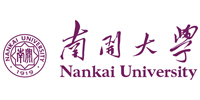
What one university’s rapid rise to become a research powerhouse can teach institutions about creating a culture for research excellence
Universities should nurture a culture of discovery, internationalisation and innovation to create the conditions for world-class research with real-world impact.
At the 2022 THE Leadership and Management Summit, held in partnership with Nankai University, Nancy Ip, president of the Hong Kong University of Science and Technology (HKUST), delivered a keynote speech about creating the conditions for world-class research.
Ip is recognised internationally for her significant contributions to the field of neuroscience and understanding the biology of Alzheimer’s disease, with her research resulting in 328 scientific papers and 70 patents.
In 1993, after working at a biotech company in the US, Ip returned to her home city of Hong Kong to join the then fledgling HKUST. The university was two years old and Ip had to build a research team from scratch.
HKUST turned 30 last year and has grown into a “vibrant academic and research centre with widespread international recognition”. It ranks highly among the world’s top young universities and more than 81 per cent of HKUST’s research submissions are rated “world-leading” or “internationally excellent”.
The key to achieving this internationally recognised reputation for research was cultivating a “vibrant and collaborative culture”. This was combined with establishing a strategic focus, global collaborations and developing and recruiting high-calibre talent.
“These are what I consider the essential ingredients for a research-intensive university like HKUST,” said Ip.
It was also critical to forge partnerships with global institutions, build a strong knowledge transfer and innovation ecosystem, and secure funding to create world-class infrastructure. HKUST focused its research strategy on the “four Is”: innovative, international, interdisciplinary and integrative.
“Being innovative, I believe, is critical to conducting world-class research. HKUST is a pioneer in so many aspects. We were the first research-intensive university in Hong Kong. We were the first university to emphasise entrepreneurship on a campus-wide scale and we foster an entrepreneurial mindset among our students,” said Ip.
The university has produced more than 1,600 active start-ups and nine unicorns related to HKUST, creating an economic impact of more than HKD 400 billion (£42.6 billion).
At faculty level, the university identifies strategic areas to build research teams and collaborate with colleagues in different disciplines. It also works to adopt, develop and leverage cutting-edge technologies and research platforms to engage in large-scale multidisciplinary research.
“To cultivate this vibrant culture of discovery, learning and innovation is critical. We do that by promoting innovative thinking and entrepreneurial spirit. By creating this sense of purpose and responsibility within the university community, we empower our university members to create positive impact,” said Ip.
Interdisciplinary research can “develop universities into research powerhouses and, in turn, global research collaboration hubs” to address global challenges. The best universities also strive to internationalise and diversify their campus to “cultivate cross-cultural understanding” and attract and retain talented students and researchers.
The final “I”, integrative, focuses on encouraging individuals to come together to explore and better understand the world. “We achieve this by promoting an open, cohesive and collaborative environment to inspire and spark new ideas,” said Ip.
To create lasting impact, Ip said it was important to foster deep engagement and collaborations with government and industry and nurture the future generation of scientists.
“I truly believe that for us to be successful, for us to be a world-class research university, it is really contingent upon our culture. And I believe that our culture is shaped by our people,” said Ip.








